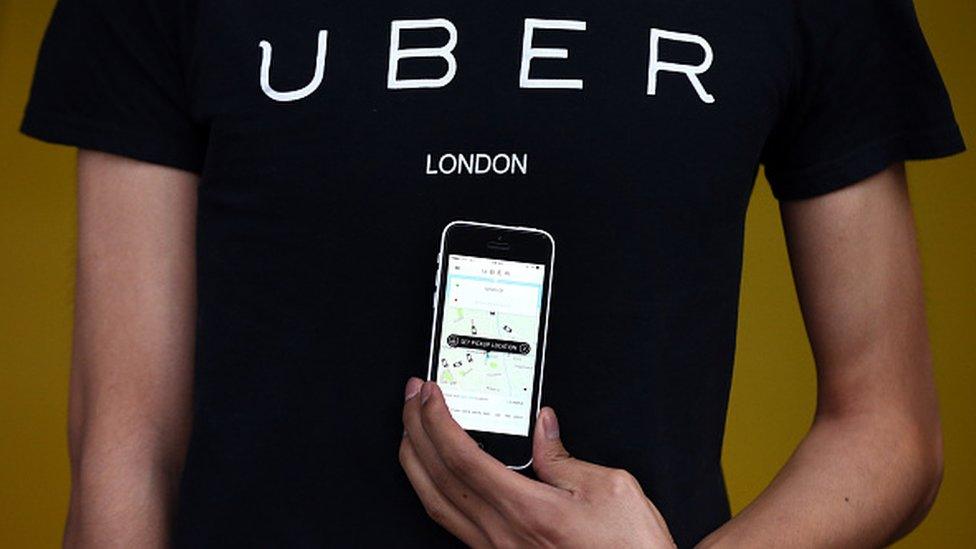Autumn Statement shows cost of casual work 'gig economy'
- Published
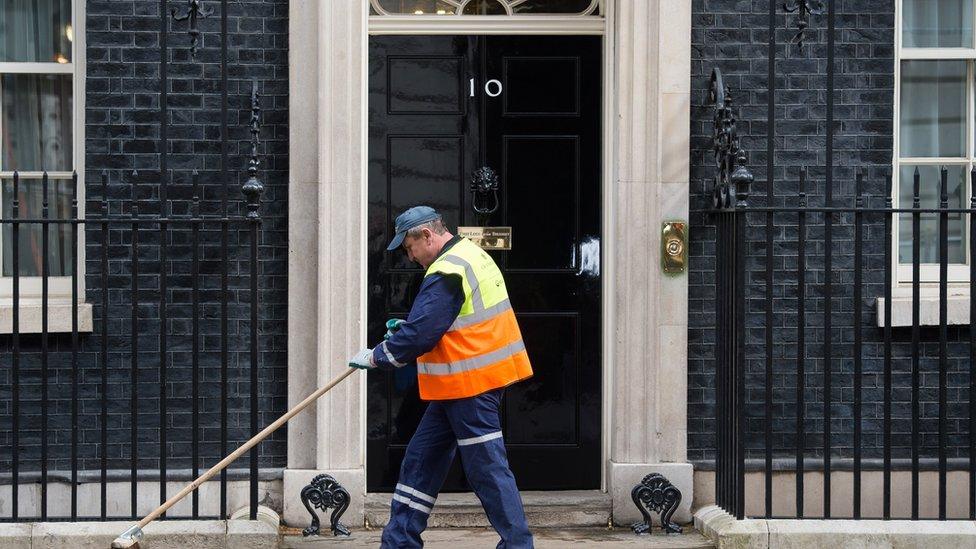
Government revenues are being hit by the growth in self-employment
The UK's "gig economy", powered by self-employment and casual work, is starting to hit government revenues.
Wednesday's Autumn Statement for the first time showed how it is cutting into the government tax take.
The Office for Budget Responsibility (OBR) estimates, external that in 2020/21 it will cost the Treasury £3.5bn.
Chancellor of the Exchequer Philip Hammond said he would find more effective ways to tax workers in the shifting labour environment.
"Technological progress is changing the way people live, and the way they work," he said. "The tax system needs to keep pace."
But the Association of Independent Professionals and the Self Employed (IPSE) said the government is ignoring the importance of the self-employed sector.
Disguised earnings
Andy Chamberlain, deputy director of policy at IPSE, said: "The chancellor boasted about record low unemployment, scoring political points, but failed to mention that the huge rise in self-employment is the main thing that allows him to make that claim."
MPs Frank Field and Andrew Forsey, in their report Wild West Work, external, published in September, said that out of those 2.6 million people who have found a new job since 2010, more than a third have been classed as self-employed.
Mr Hammond also said that he could claw back some £630m over the next five years from self-employed workers who are not paying tax on so-called "disguised earnings", payments made as, for example, a loan or a payment in kind.
Mr Chamberlain said he "wholeheartedly supported" any measure to stop any scheme deliberately designed to avoid paying tax.
But he added: "The loss in tax revenue for the government is not because self-employed workers are paying much less. The real differential is because the employer is no longer paying National Insurance Contributions (NIC).
"If you employ someone for £100,000, you pay the taxman about £13,000 in NIC. If you pay a self-employed person the same amount, the government loses that tax revenue."



Mr Hammond also said the government was losing revenue from "incorporation", the process by which individuals form a company, often with themselves as the only employee, to pay less tax.
By doing so, instead of just taking a salary and paying income tax, they can also get much of their earnings as dividends from their corporate profits.
Even though the tax on dividends has risen, for most people it is still lower than income tax.
And for the Treasury that means less tax revenue.
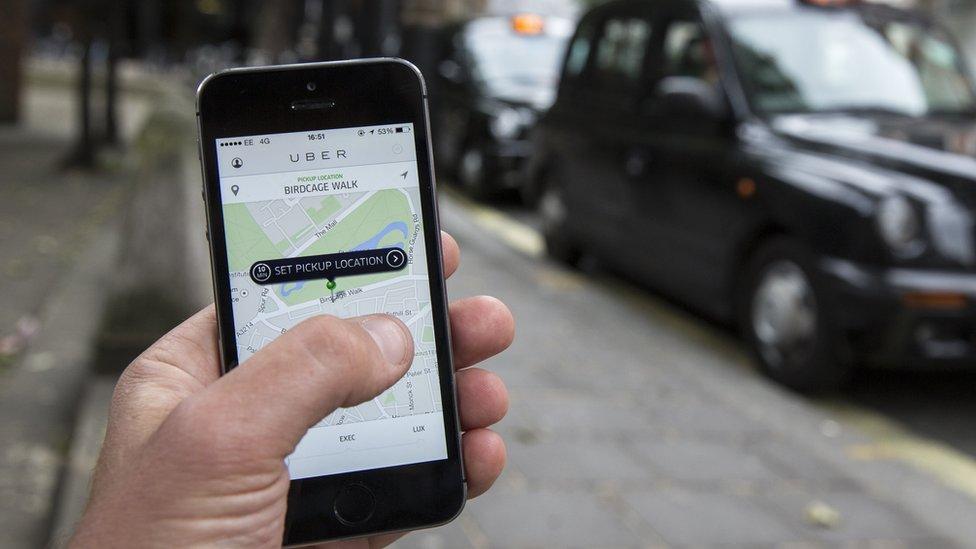
The chancellor said in the Autumn Statement he would "consult in due course on any proposed changes".
Mr Chamberlain said: "The reason self-employed workers become incorporated is not just to do with tax. It's also to do with the security of having limited liability.
"And clients often insist upon it if they want to have a business-to-business relationship. This whole area of work is changing faster than the government can keep up with.
"For instance the ruling on the Uber drivers last month that established that they were workers, employed by Uber, gives them some statutory rights. But it doesn't effect their tax status, which is still one of self-employed."
Mr Chamberlain added: "The government is now beginning to wonder if it really has the systems in place to capture all the different ways of working."
- Published16 September 2016
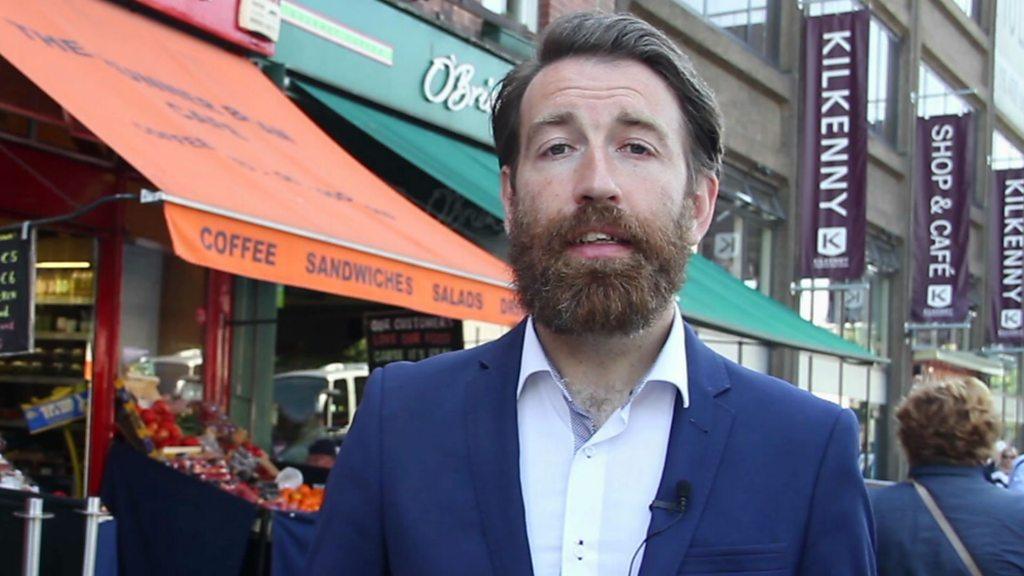
- Published10 October 2016
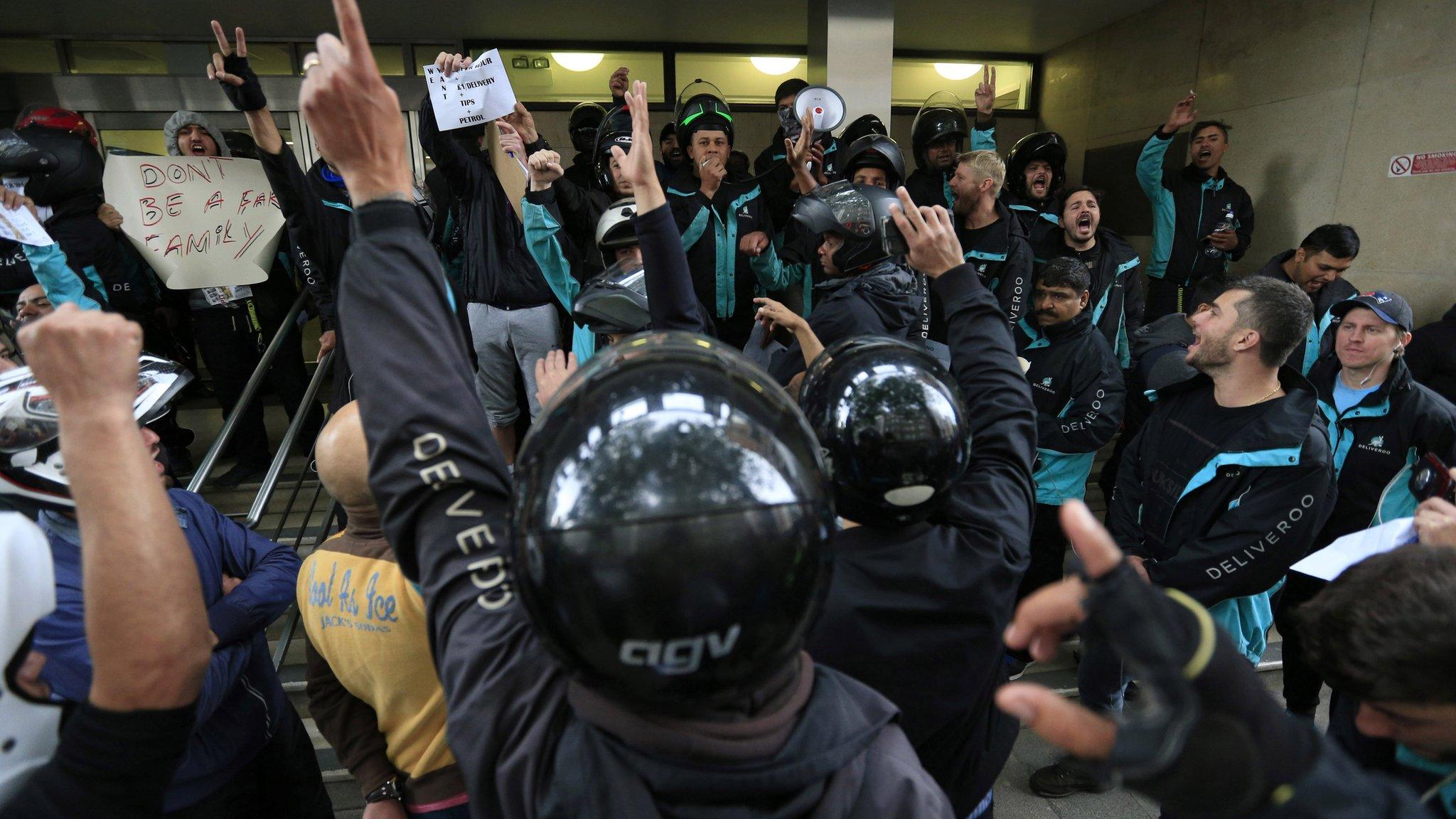
- Published28 October 2016
